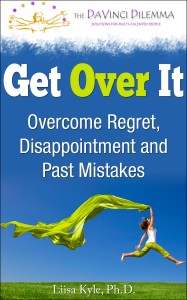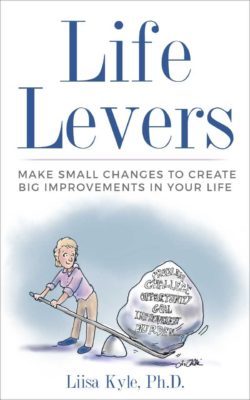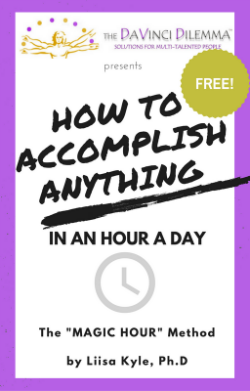
By User:Vassil (File:Sépulcre_Arc-en-Barrois_111008_12.jpg) [CC BY 3.0 (https://creativecommons.org/licenses/by/3.0)], via Wikimedia Commons
1. Recognize that everyone has some regrets in life – and see how they handle them.
You are not alone. Look at how the people you know handle their regrets. Of those, who would you like to emulate? Uncle Biff who’s never ever gotten over that missed baseball in Little League – or Aunt Buffy who made and lost a million bucks and laughed her way through the process of making her subsequent million?
Look for inspiration in celebrities, too. Growing up, Mel Brooks studied drums with the drumming legend Buddy Rich. Rich thought young Mel was a prodigy and was grooming him to follow in his footsteps. When Mel heard the siren song of comedy writing, Rich warned him he was making the mistake of his life giving up a promising career in music to mess around telling a bunch of stupid jokes. Brooks says that although Rich never forgave him, he never regretted the path he took.
2. Apply a statute of limitations.
What is it that’s got you stuck in Coulda Woulda Shoulda thinking? Write it down. When did this event occur? (Wait, how many years ago?!) How much longer do you intend to brood over it? Do yourself a favor by placing a limit on how long you let yourself dwell on what happened (or what didn’t happen). (“Okay, I’ve felt badly about this for four years now. That’s plenty. Time to move on.”)
3. Do a reality check.
Most Coulda Woulda Shoulda thinking involves the implicit assumption that IF I would’ve done X (or not done Y), my life would now be much better, if not perfect. The fact is, however, that’s not necessarily so. If you would’ve done X (or not done Y), it’s not clear that you would have been successful. Odds are slim that every single thing would have unfolded perfectly. You don’t know what challenges or calamities may have befallen you along that untaken path.
Consider the notion that you made the very best decision and took the very best course of action available to you at the time, under those circumstances.
4. Appreciate your present circumstances.
Whatever’s going well for you now might not have been possible, had you taken that other path way back when. List five things that are in your life now — or experiences you’ve had that you value – that you would NOT have if your Coulda Woulda Shoulda situation had turned out differently. For example, a colleague was talking to me about a ‘golden opportunity’ she had — but didn’t take — to become a TV writer when she was 24. She had been thinking of it as a regret…until she realized that had she taken that path, she wouldn’t have had her ten year corporate career, the experience of living in Europe for a decade, her current wonderful marriage and a host of other elements that make her a better writer and a better person today.
5. What lesson(s) can be learned?
Think about your Coulda Woulda Shoulda experience. What happened? What might you do differently in the same circumstances? If you could go back in time and coach yourself through whatever happened, what advice would you give yourself? In what ways have you repeated your Coulda Woulda Shoulda experience? For example, did fear stop you? In what way are you still doing this today? Does your Coulda Woulda Shoulda represent an obstacle with which you’re still grappling? What alternative solutions are there?
6. Revisit your dreams.
If you’re still brooding over something, odds are it involved an important dream – one that probably got deferred. Ask yourself: is this still a dream or goal to which you aspire? If so, how can you take steps towards achieving that dream, starting now? If the dream is less attractive to you now, then give yourself permission to stop mourning what didn’t happen. It could well be that you didn’t REALLY want what you thought you did. For example, it could be that your earlier goal was something you (or someone close to you) believed you ‘Should’ do, rather than a true passion. For example, maybe you didn’t get into Medical School…and maybe that’s a good thing. The blood and gore and educational costs and long hours and lawsuits just aren’t that appealing. Perhaps you didn’t get that movie role and now you’re grateful you have the privacy that you would have lost and that you now cherish, working behind the scenes.
Or it could be that you weren’t (and aren’t) willing to put in the effort required to make your dream come true. Maybe it’s more of a it’s more of a fantasy than a life goal. (Sure, I’d love to be a size zero…but I’m not prepared to undertake the chronic starvation, oppressive exercise schedule and probably surgery required to achieve that particular physique.)
*****
Activity:
- Write down your Coulda Woulda Shoulda experience.
- How long ago did it occur?
- Have you brooded over it long enough?
- What lessons can you learn from what happened then? If you could got back in time and coach yourself through what happened, what advice would you give yourself?
- Ask others for advice. Present the situation as an anonymous hypothetical. Ask what they would do under those circumstances. Odds are, they may come up with new ideas, suggestions or perspectives.
- List five things that are in your life now — or experiences you’ve had that you value – that you would NOT have if your Coulda Woulda Shoulda situation had turned out differently.
- Is this still a dream or goal to which you aspire? If so, how can you take steps towards achieving that dream, starting now? If the dream is less attractive to you now, then give yourself permission to stop mourning what didn’t happen.
*****
For more, check out my book “GET OVER It: Overcome Regret, Disappointment and Past Mistakes”. Available here: http://bit.ly/GetOverItNow
*****
If you’d like to share or publish this article, you may, if you include the author’s name, a link to this original post and the following text blurb:
Are you struggling with too many talents, skills, ideas? You may have The Da Vinci Dilemma™! Find tools, fun quizzes, coaching, inspiration and solutions for multi-talented people at http://www.davincidilemma.com/




